Estimated reading time: 9 minutes
Have you noticed your feline friend turning up their nose at the litter box they once frequented? Why has your dependable kitty suddenly decided to do their business outside of the litter box? The reasons behind this shift can range from simple preferences to more serious health concerns.
Cats are creatures of habit, and any change in their routine or environment may disrupt their litter box use. Whether it’s a new brand of litter or a recently moved box, these alterations can unsettle your pet.
This article will guide you through understanding why your cat may have suddenly stopped using the litter box and what steps you can take to address this issue.
From uncovering potential medical problems to reassessing the setup of your cat’s toilet area, we’ll provide practical solutions designed with both you and your whiskered companion in mind.
Key Takeaways
- Keep the litter box clean by scooping daily and changing the litter weekly. This makes it more inviting to your cat.
- Make sure the litter box is in a quiet, private, and accessible location. Use boxes with sides that are easy for your cat to get in and out of, especially if they are older.
- Choose a type of litter that your cat likes. Avoid strong scents or textures that might turn them off. Stick to one kind of litter for consistency.
- Watch for signs of stress or medical issues like FLUTD, which can cause cats to stop using their box. See a vet if you notice any health problems.
- For homes with several cats, have enough boxes available by following the “n + 1” rule—one more box than the number of cats you have.
Understanding Cat Behavior and Litter Box Use
Cats are clean animals that often prefer a tidy and private spot to do their business. They have instincts that drive them to bury their waste, which keeps predators from sniffing them out.
A litter box caters to these natural habits. It’s like a personal bathroom for your kitty where they can feel safe and undisturbed.
Issues arise when something about this setup doesn’t sit right with your furry friend. It could be the cleanliness of the box or even its location in your home.
Cats also pay close attention to the texture and smell of the litter itself – if it’s not up to par, they might look elsewhere.
Think of each part of the litter box experience through your cat’s eyes to understand what changes might help them use their designated space again.
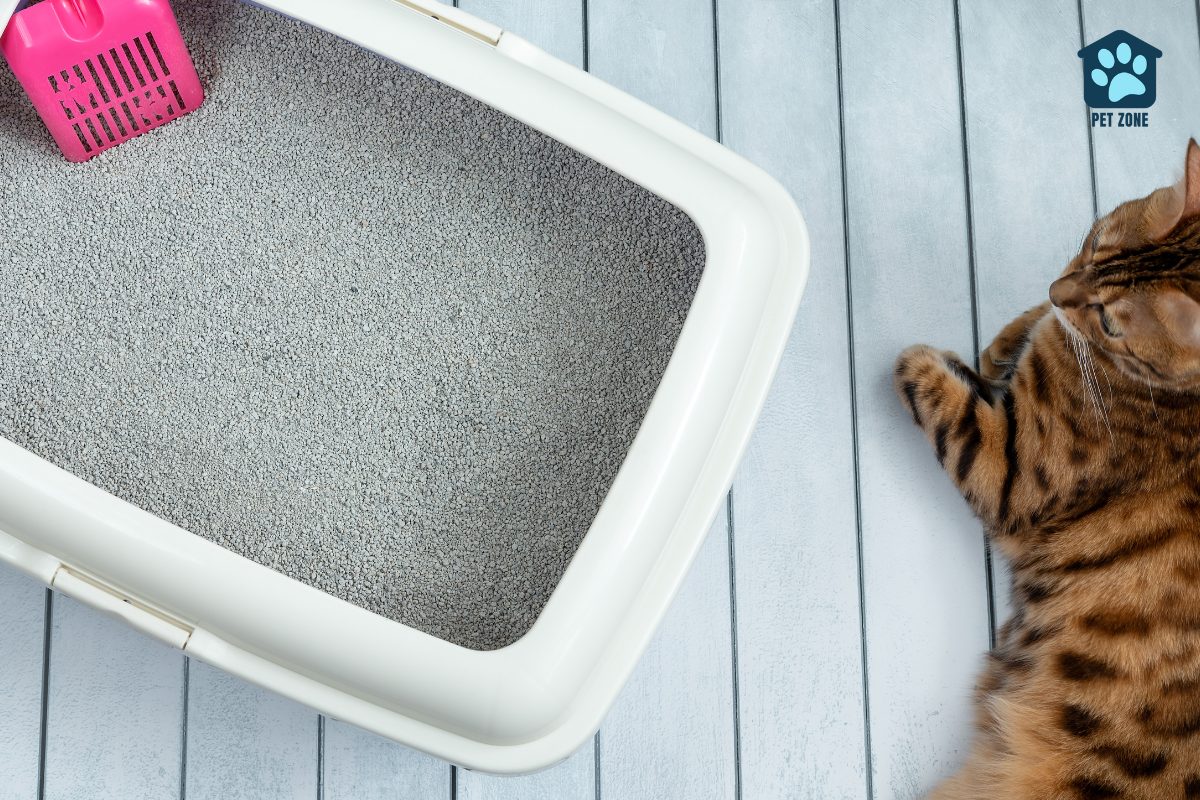
Common Reasons Why Cats Stop Using the Litter Box
Litter Box Cleanliness
Cats love a clean place to do their business, so a dirty litter box might make them go elsewhere. You should scoop out waste every day and change the litter once a week. This keeps it smelling fresh and inviting for your cat.
Wash the box with mild soap and water during each litter change; harsh chemicals can turn cats away.
Some cats don’t like liners or mats in their boxes because these can feel strange under their paws. If you notice your cat is avoiding the litter box, try removing these items to see if it helps.
Always keep an eye on cleanliness—it’s key to getting your cat to use the litter box properly again.
Location Privacy and Accessibility
Your cat loves privacy when doing its business. Think about where you place the litter box in your home. It should be in a quiet spot, away from noise and foot traffic. Cats don’t like to feel exposed or unsafe while using their litter boxes.
Make sure your feline friend can get to and from the box easily too. Sometimes stairs or closed doors can block the way.
Also, consider how easy it is for your pet to enter and leave the box. If you have an older cat, they might struggle with high sides on a litter box. And if you move the box to a new area, this could confuse your furry pal.
Keep it in one accessible location so your cat knows exactly where to go when nature calls. Don’t tuck it away in hard-to-reach corners or behind stuff that blocks their path.
A happy cat has no trouble taking care of its needs without stress.
Litter Box Size and Shape
The size and shape of the litter box matter to your cat. A larger, open-design box can be more inviting for your pet. Providing different-sized boxes can cater to individual preferences.
High-sided boxes help prevent scatter and give cats privacy, but be careful of any potential access issues if you have an older cat.
Different sizes and shapes accommodate cats’ preferences. The right design can encourage use, while the wrong one might put your cat off using it altogether.
Type of Litter
Consider the type of litter used in your cat’s box. Some cats may dislike litter with a strong scent, excess dust, or a texture that feels unfamiliar to them.
Changes in the type of litter can lead to your cat eliminating outside the box. Stick to the same kind of litter that your cat is accustomed to for consistent use. Make sure to gradually introduce new litter if necessary.
Age of Cat
As cats get older, they may encounter mobility or cognitive decline, leading them to stop using the litter box. Senior cats are susceptible to health issues like diabetes and kidney disease, which can cause problems with their litter box habits.
Moreover, an aging cat’s preference for specific litter types due to texture or smell may also affect their behavior. Stress and anxiety can contribute to these challenges as well.
It’s important to consider the location, size, type, and cleanliness of the litter box to your cat’s age. When addressing this issue with an older cat, retraining to use the litter box might be necessary if they’ve developed avoidance habits.
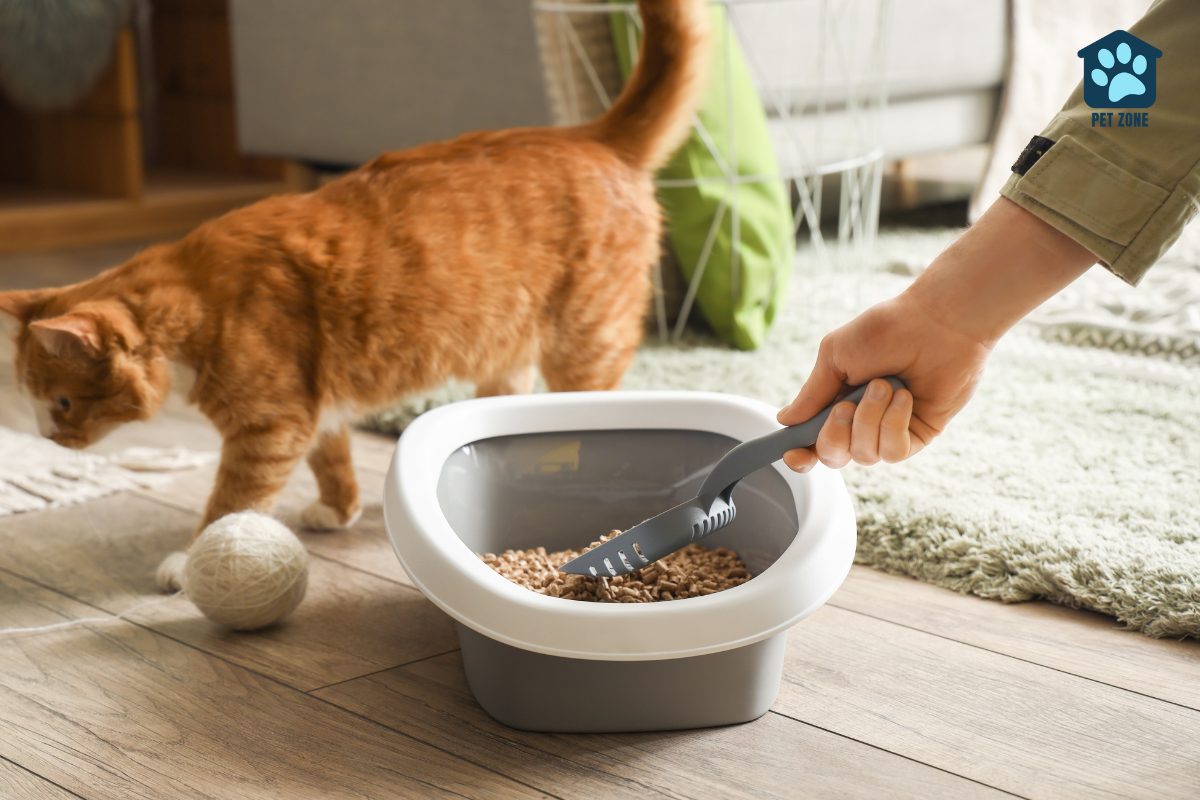
Number of Litter Boxes for Multiple Cats
It’s important for cats to feel they have their space, so follow the “n + 1” rule: Have one more litter box than the number of cats in your house.
This provides options and reduces stress, promoting better hygiene and peace among furry friends.
Stress in Cats
Stress in cats can lead to litter box avoidance. Situations like moving, remodeling, or introducing new pets can cause stress for your cat. Punishment might make things worse as it can add to the stress.
If a cat associates using the litter box with a scary experience or past medical issue, it may start eliminating outside of it. Bad location and household chaos can also contribute to stress and impact a cat’s litter box habits.
It’s crucial to be mindful of your cat’s physical, social, and medical needs as avoiding the litter box could signal that these needs are not being met.
Medical Issues Related to Litter Box Avoidance
Feline Lower Urinary Tract Disease
Feline Lower Urinary Tract Disease (FLUTD) can cause your cat to avoid the litter box due to pain and discomfort during urination.
Straining in the litter box is often a sign that the cat’s urethra is blocked, indicating a potential medical emergency. If you notice your cat exhibiting these symptoms, it’s crucial to seek veterinary care promptly as untreated FLUTD can lead to serious complications for your pet.
Bacterial Cystitis
Bacterial cystitis can make your cat avoid the litter box. This condition causes discomfort and excessive urination urgency in cats. It’s important to consult a veterinarian if you notice signs of urinary issues in your cat, such as frequent trips to the litter box or unusual urination patterns.
Kidney Failure
Kidney disease in cats, if left untreated, can progress to kidney failure, causing a range of serious health issues. Pet owners need to be aware of the signs and symptoms of kidney disease so that they can seek timely veterinary care for their feline companions.
Early detection and proactive management are crucial in addressing this potentially life-threatening condition. Encouraging regular check-ups with your veterinarian and maintaining a balanced diet can play an important role in minimizing the risks of kidney-related complications for your beloved pet.
How to Encourage Your Cat to Use the Litter Box Again
- Establish a calm environment and strict routine for feeding and play to encourage your cat to use the litter box again.
- Keep the litter box clean to make it more appealing for your cat to use.
- Consider using shallow litter boxes or getting a bigger or different type of litter box that your cat may prefer.
- Use a thin layer of baking soda in the litter box to help absorb odors without repelling your cat.
- Avoid using liners and mats in the litter box, as they may deter your cat from using them.
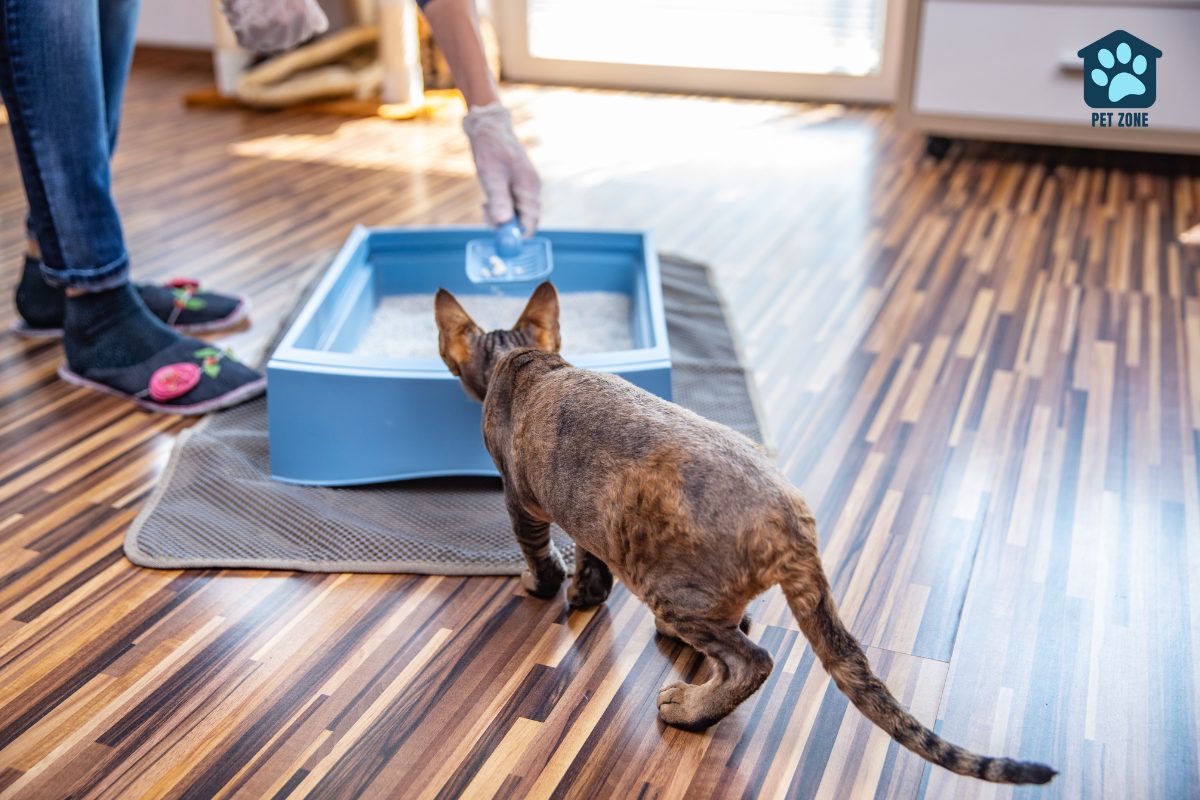
Conclusion
To sum up, understanding the reasons behind your cat’s litter box aversion is crucial for resolving the issue. By addressing factors like cleanliness, accessibility, and stress, you can practically aid your cat in using the litter box again.
Implementing these strategies not only promotes a harmonious environment but also ensures your cat’s well-being. Further resources on feline behavior and professional guidance can offer valuable support in this journey.
Remember, with patience and persistence, you can effectively address and resolve common litter box problems for a contented pet and a peaceful home.
Frequently Asked Questions
Your cat may have stopped because there might not be enough litter boxes, it doesn’t like the type of litter, or maybe the location of the box is not ideal. Cats can also stop using their boxes if they’re dirty or if something in their environment has changed, such as a new cat in the house.
Yes, cats are sensitive to change and might dislike her new brand or type of litter. If your cat suddenly stops using the box after switching litters, try going back to the old kind.
First, clean up any messes right away and think about any changes you made recently – different clumping litter perhaps? Give your kitty plenty of fresh water and watch for other signs that she’s not feeling well.
Definitely! You’ll need one extra box for each family feline so every cat feels comfortable when it’s time to go. No kitty likes sharing too much!
Cats sometimes don’t like covered boxes because they trap odors inside – imagine how you’d feel in an unventilated bathroom! Try an open style instead for better luck.
If simple fixes don’t work – like adding inches of fresh-clumping litter or cleaning boxes more often – then it’s time to visit your vet just in case health problems are stopping them from sticking to routines.
As an Amazon Associate I earn from qualifying purchases.
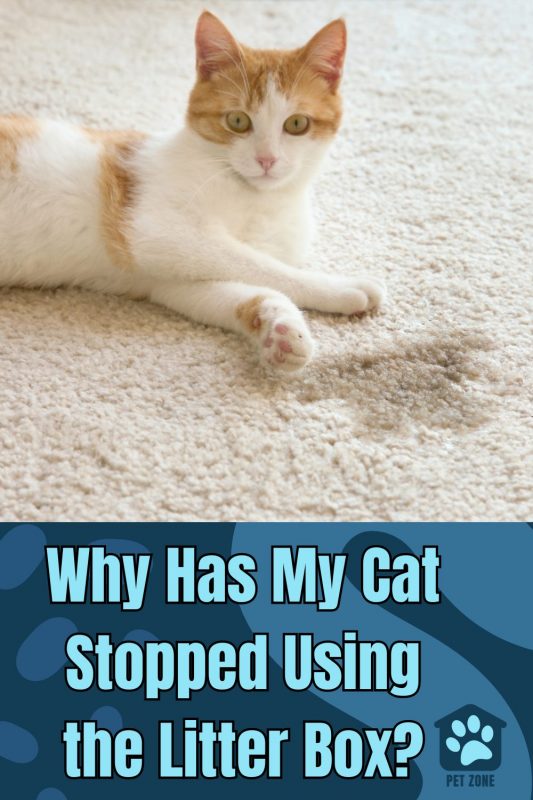


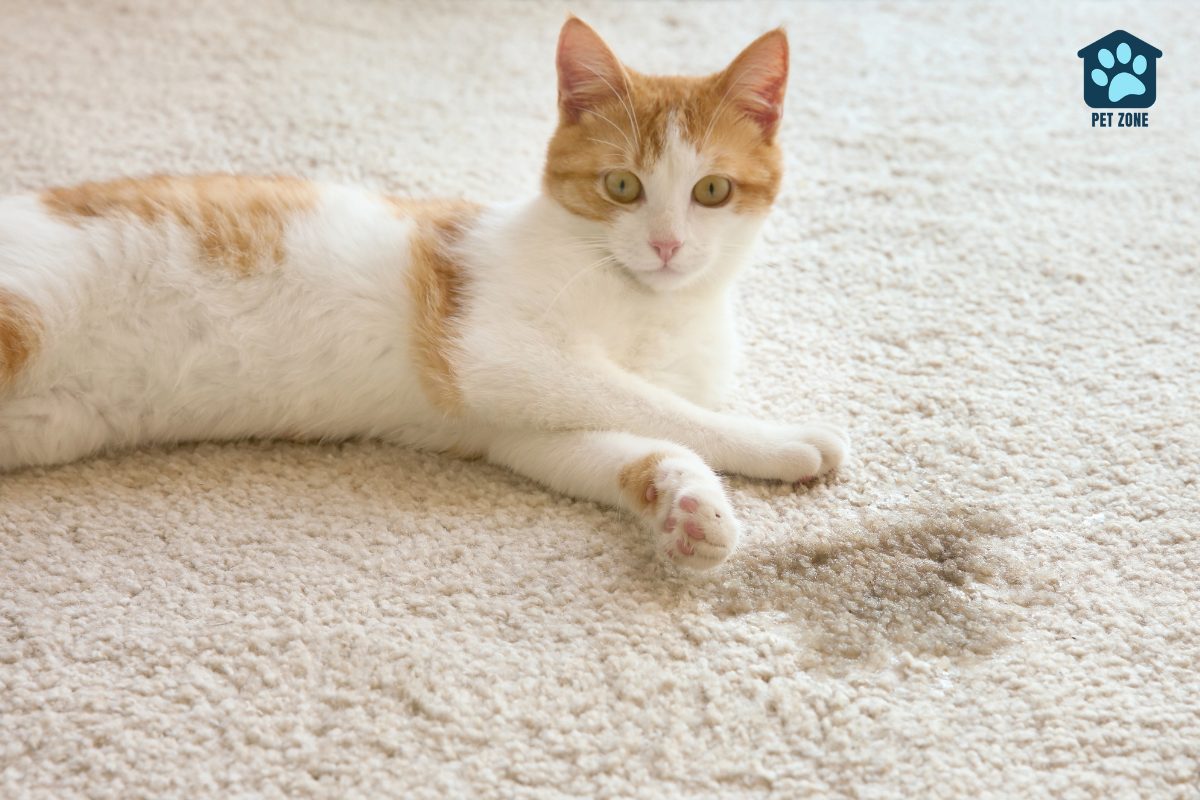

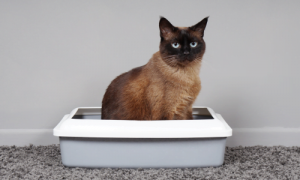
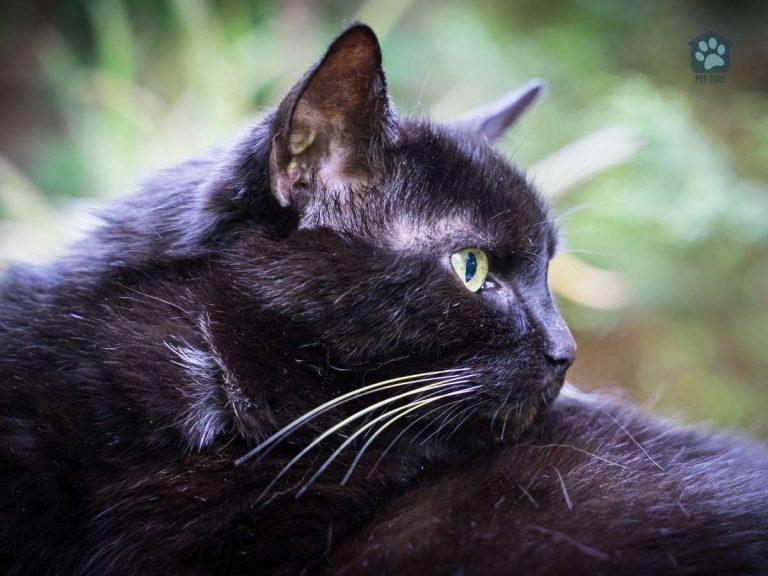
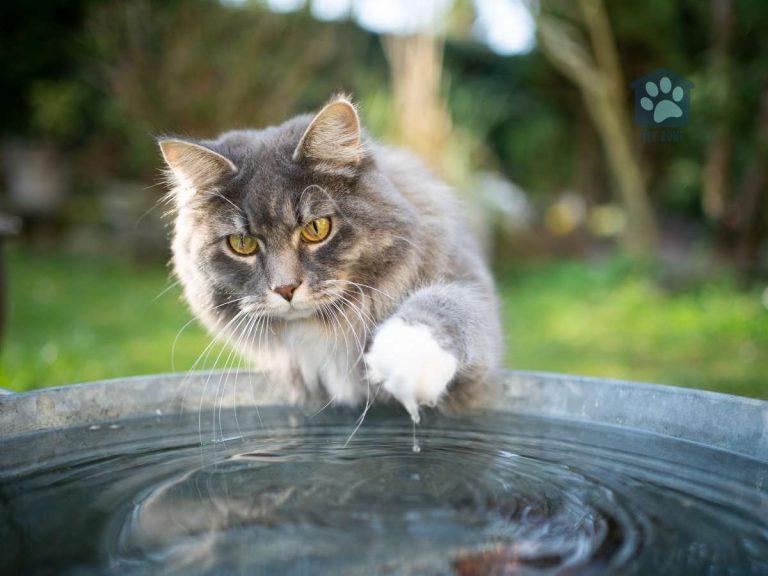
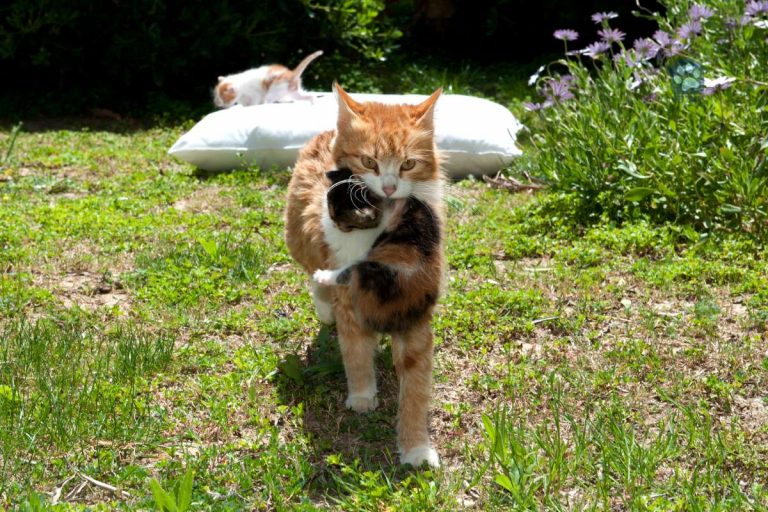
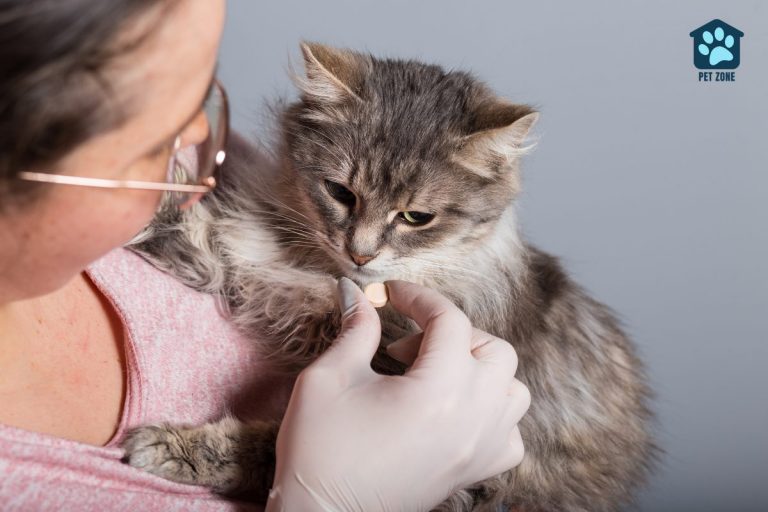
Great insights on addressing cat litter box issues! Keeping the litter box clean and considering your cat’s preferences can make a big difference 😃